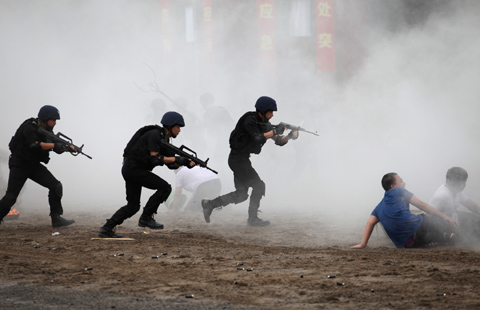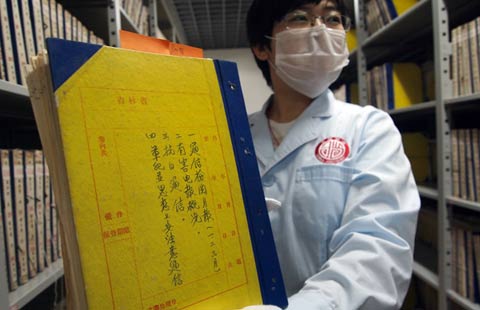Putting hospitals on the road to recovery
By Zhang Lei in Beijing and Yan Yiqi in Wenzhou, Zhejiang province (China Daily) Updated: 2014-06-18 08:25Interim measures to set up the fund were promulgated on April 17. The measures stipulated the terms under which the money can be used: a temporary inability to pay, either on the part of the injured party or the person deemed to be responsible for the accident; when the cost of treatment exceeds insurance coverage; when a driver isn't insured; and for injuries sustained in a hit-and-run accident. Following treatment, the funding agency and the police can apply for reimbursement from the person deemed responsible for causing the accident.
Deng Liqiang, the director of Chinese Medical Doctor Association's legal department, said the fund is proving more effective than the National Social Aid Interim Measures, which came into force on May 1, and only cover patients with jobs and a relevant hukou, or residence permit. By contrast, in Wenzhou the fund covers all patients, irrespective of whether they are in permanent employment, or lack identification papers or a residence permit.
"If the law only stipulates mandatory aid to people injured in road accidents, but doesn't include specific measures, the hospitals are still unable to help the vulnerable. Some hospitals are in an invidious position because many victims are unable to pay the costs of basic medical care, but the hospitals don't have enough funds to treat unlimited numbers of people. They are often caught up in the contradictions of social morality and a lack of capital," Deng said.
This dilemma doesn't just affect the hospitals, though, because the injured and their relatives often find themselves at a disadvantage too. On April 25, a motorcyclist surnamed Yang was seriously injured when he collided with a van at an intersection in Xiamen, Fujian province. His relatives said they had spent more than 53,000 yuan on his treatment but were unable to continue paying out large sums. They claimed that even before Yang was officially declared to be out of danger, the hospital repeatedly sent notes demanding payment.
Yang's relatives contacted the driver of the van in the hope that he would contribute to the treatment costs, but he refused to do so until the police had determined responsibility for the accident and compensation had been awarded. Yang's doctor said the hospital was unable to continue treating him until payment details were clarified, and under China's Road Traffic Safety Law the police are not authorized to resolve civil compensation cases.
Immediate treatment
The measures adopted in Wenzhou clearly state that medical institutions should provide immediate treatment for people injured in traffic accidents, irrespective of concerns about payment.
In addition to the 30,000 yuan available per patient, the fund also covers funeral expenses up to six times the average monthly wage in Zhejiang province, which according to the latest available figures was 3,341 yuan in 2012. However, in special circumstances if the sum exceeds the payment ceiling, a team composed of officials from the departments of municipal finance, public security, health, civil affairs and social security will study the case and determine a figure.
- Courts in China to look out for lawyers
- China to accelerate development of insurance sector
- Electric-car buyers to get
tax exemption - China's progress on health reform 'remarkable'
- China's next kungfu masters
- Mermaids splash coolness to Nanjing summer
- Li: Govt will boost input for healthcare
- Colleges to retest athletes who got gaokao bonuses
- Top court to raise judges' pay
- JV to pay maximum fine for polluting air







